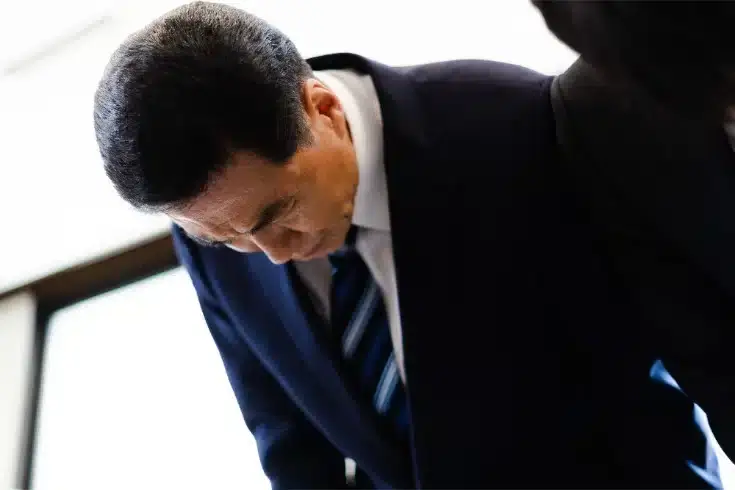What is a Term Sheet When Receiving Investment through J-KISS (Japanese Simple Agreement for Future Equity)?

The J-KISS system, primarily designed for quick and easy investments in seed-stage startups, comes with a template for an investment contract supervised by lawyers and other professionals. Therefore, when actually receiving investments through J-KISS, there aren’t many items on the term sheet that investors and startups need to negotiate and decide upon according to the investment project. In this article, we will explain what items should be decided on the term sheet in investment projects using J-KISS, and points to be careful about in negotiations.
Investment Agreements and Term Sheets in J-KISS
J-KISS is a fundraising mechanism designed to simplify and expedite investment from venture capital firms into startups in their seed stage. This model is freely shared by Coral Capital, formerly known as 500 Startups Japan. What sets J-KISS apart is its focus on “warrants for future shares” instead of conventional stock options.
Using warrants allows startups to bypass complicated procedures usually required when issuing shares. Additionally, it enables both the startups and investors to defer valuation—a challenging task at the seed stage—to a later date, which is beneficial for both parties.
The J-KISS framework impacts the contents of investment contracts as well. Typically, startups raise funds by issuing shares, leading to contracts like stock subscription agreements and shareholder agreements. A stock subscription agreement outlines the terms by which an investor purchases shares in a startup. The contracting parties here are the investor and the startup. On the other hand, a shareholder agreement is between existing shareholders and aims to allow investors some level of control over significant business decisions of the startup.
In most cases, the startup founders own more than 50% of the company shares. According to Japanese company law, a majority shareholder can generally make business decisions without needing approval from other shareholders. However, investors in startups usually seek some level of involvement in management, regardless of their shareholding percentage. To meet this requirement, they negotiate shareholder agreements with existing shareholders, including the founders, specifying matters that require pre-approval.
Previously, startups that sought to raise capital through shares had to navigate lengthy investment contracts. In contrast, the J-KISS model focuses on warrants, which eliminates the need for extensive terms. Therefore, when using J-KISS for fundraising, only a minimal set of matters needs to be settled in the term sheet, streamlining the entire process.
Items to be Determined on the J-KISS Investment Term Sheet

In investments made through J-KISS, the items to be determined on the term sheet through negotiations between the investor and the startup are mainly the following:
- The amount of Series A funding that triggers the conversion of new share subscription rights
- The valuation cap as the maximum valuation in the conversion price
Amount of Series A Funding that Triggers the Conversion of New Share Subscription Rights
In J-KISS, new share subscription rights are converted into shares when Series A funding is raised. In other words, the raising of Series A funding becomes the trigger for the conversion of new share subscription rights.
The issue is the amount of Series A funding that triggers the conversion of new share subscription rights. Although the J-KISS template sets this amount at 100 million yen as a guideline, the amount of funding that should be the conversion trigger can change depending on the nature of the business. One of the reasons why J-KISS chose new share subscription rights as the investment target was to postpone the company valuation until Series A. Therefore, when determining the amount of Series A funding that will be the conversion trigger, it is necessary to consider that the startup has grown to a stage where at least a company valuation is possible.
Valuation Cap as the Maximum Valuation in the Conversion Price
Method of Calculating the Conversion Price Using the Valuation Cap
In J-KISS, the conversion price of new share subscription rights is calculated by applying a certain discount to the acquisition price of shares issued in Series A funding. However, if the calculation method is only based on the discount, the higher the company value at the time of conversion of the new share subscription rights for J-KISS investors, the fewer shares they can acquire. This could conflict with the interests of startups that want to increase their company value and the profits of J-KISS investors. Therefore, in J-KISS, not only the calculation method based on the discount but also the calculation method using the valuation cap (the maximum amount of company valuation) can be used for the conversion price.
Specifically, the valuation cap is determined in the investment contract, and the amount obtained by dividing the valuation cap by the total number of issued shares just before the Series A funding that triggers the conversion is used as the conversion price.
Since the total number of issued shares just before the Series A funding is determined unambiguously, if the calculation of the conversion price using the valuation cap is used in combination, the item to be determined in the negotiation of the investment contract by J-KISS is the amount of the valuation cap.
How to Determine the Valuation Cap
The number of shares that J-KISS investors can hold is determined in conjunction with the amount of the valuation cap. Therefore, investors and startups need to consider how many shares it is reasonable to let the investor hold when determining the valuation cap.
Also, since the amount of the valuation cap is determined by negotiations between the investor and the startup, the amount can change depending on factors such as whether the founder is a celebrity or whether the startup is popular with investors. However, a higher valuation is not necessarily better. If the initial valuation is too high, it may be difficult to raise funds in subsequent rounds, so caution is needed. This negotiation of the valuation cap is the biggest highlight in J-KISS investment.
Summary: Explanation of J-KISS Term Sheet in receiving Investment through J-KISS
As such, one of the distinctive features of the Japanese KISS (J-KISS) is that there are very few items that need to be decided on the term sheet at the time of investment, and the minimum necessary items are subject to contract negotiations.
The new share options acquired by investors through J-KISS investments are usually converted into regular shares in Series A. Therefore, the conditions for conversion and the number of shares that the investor will hold after conversion are important points of negotiation. In particular, the shareholding ratio of investors other than the founders can influence subsequent capital policies, so it is necessary for startups to give sufficient consideration. The type of negotiations that should be conducted can vary depending on the attributes of the investor and the nature of the startup’s business, so it is recommended to consult with legal professionals when actually receiving an investment through J-KISS.
Category: General Corporate
Tag: General CorporateM&A





















